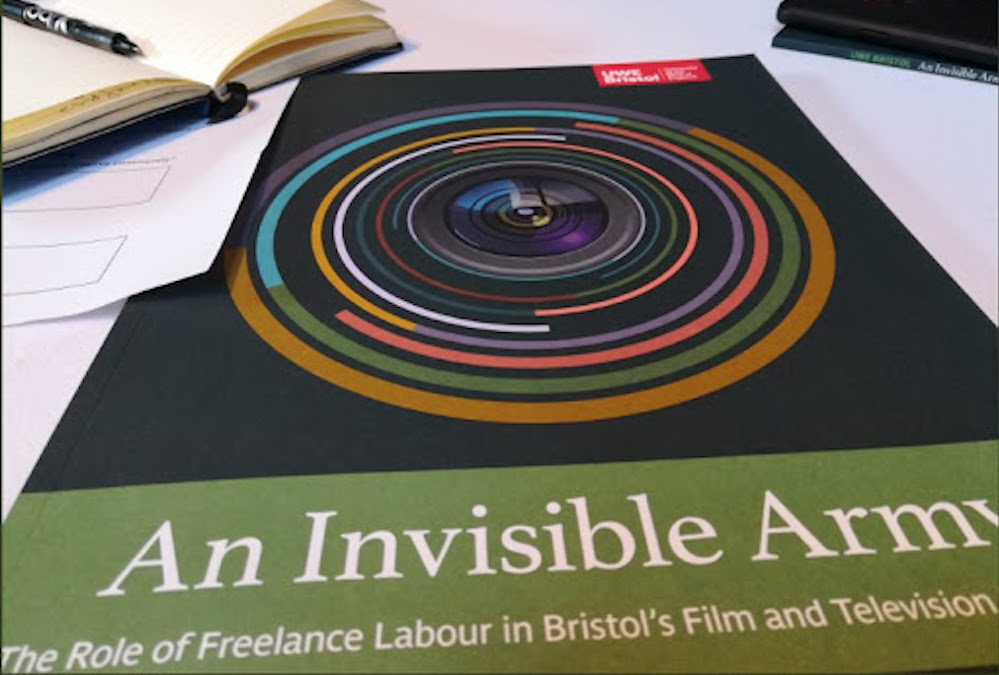‘An Invisible Army: The Role of Freelance Labour in Bristol’s Film and Television Industries’
‘The Role of Freelance Labour in a Creative Cluster’ is a one-year (January 2018-19) research project funded by the AHRC 3D3 National Productivity Investment Fund. Led by academics at the University of the West of England, the project explores the working lives of creative freelancers in Bristol’s film and television industries.
Topics the research seeks to address include:
- The contribution of freelance labour to Bristol’s creative ecology
- The ways in which freelance workers build and sustain professional networks
- The impact of freelance labour on productivity and innovation
- The challenges facing freelance workers in Bristol’s film and television industries
Click here to download the full report
Why freelancers?
Freelance labour is central to production in the creative industries yet studies have identified the often precarious nature of freelance labour and the difficulties of sustaining ‘portfolio’ careers. The significance of the creative industries to the UK economy makes it imperative to understand further how freelance labour works and analyse the specific ways in which it contributes to productivity and innovation. This project will be the first to investigate the importance of freelancers to the ecology of a regional ‘cultural cluster’, specifically Bristol’s film and television industries and draw on Professor Andrew Spicer and Dr Steve Presence’s data on freelancers (http://bftv.org.uk/report/).
Why Bristol?
With just under half of the UK film industry located outside of London (BFI, 2015) and the increased devolution of television production to the UK’s nations and regions, it is now imperative to investigate the role of freelance labour within regional cultural clusters such as Bristol and understand their contribution to the broader UK creative economy.
Bristol is the UK’s third largest cluster of film and television workers after London and Manchester, with an estimated 1,500 freelancers working in the region (Spicer and Presence, 2017). Within a production ecology composed of BBC Bristol and 131 private companies, Bristol is perhaps most notably home to multi-award winning Aardman Animations and the BBC’s world-renowned Natural History Unit, which has produced groundbreaking programmes for over half a century. Bristol’s independent film and television sector is also economically significant, contributing £140.3m to the local economy between 2015 and 2016 (ibid).
Methodology
The research has two principal objectives: i) to map the interconnecting networks of freelance film and television workers in Bristol and analyse how they create value for these industries and the ways in which they contribute to Bristol’s creative ecology; ii) to provide a detailed portrait of the freelancers’ working lives, aspirations and the challenges they face through conducting and analysing a range of interviews with freelancers from a variety of occupational groups within the film and television industries.
In line with these objectives, approximately twenty/twenty-five semi-structured qualitative interviews will be undertaken to gain an insight into the working lives, practices and networks of freelance film and television workers in Bristol. Interviews will begin in March and be completed by June 2018.
Contact us
If you have any feedback, comments or questions please get in touch via the Project contact page, or alternatively email Dr Amy Genders at amy.genders@uwe.ac.uk



